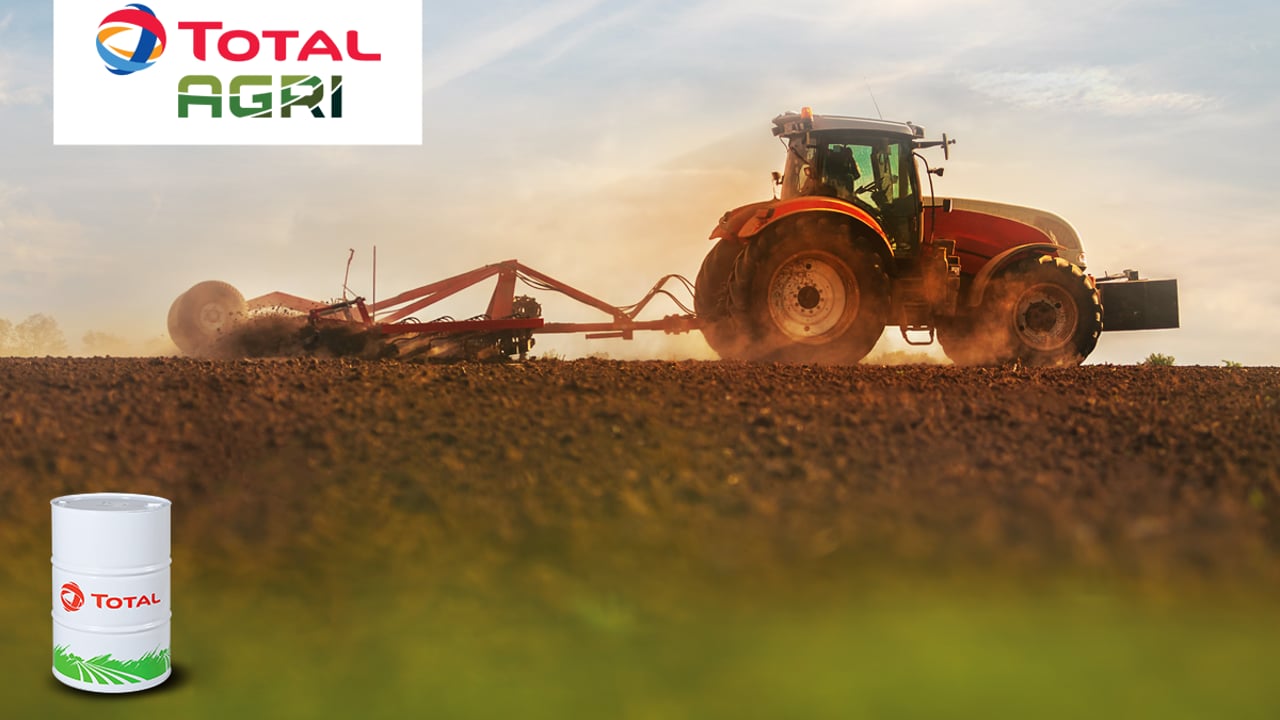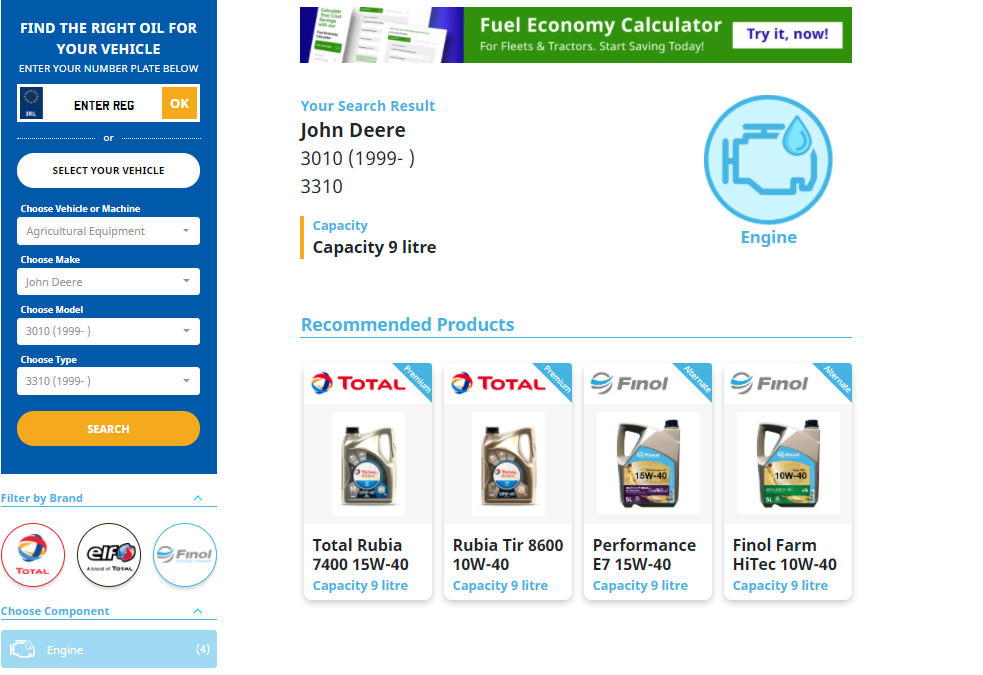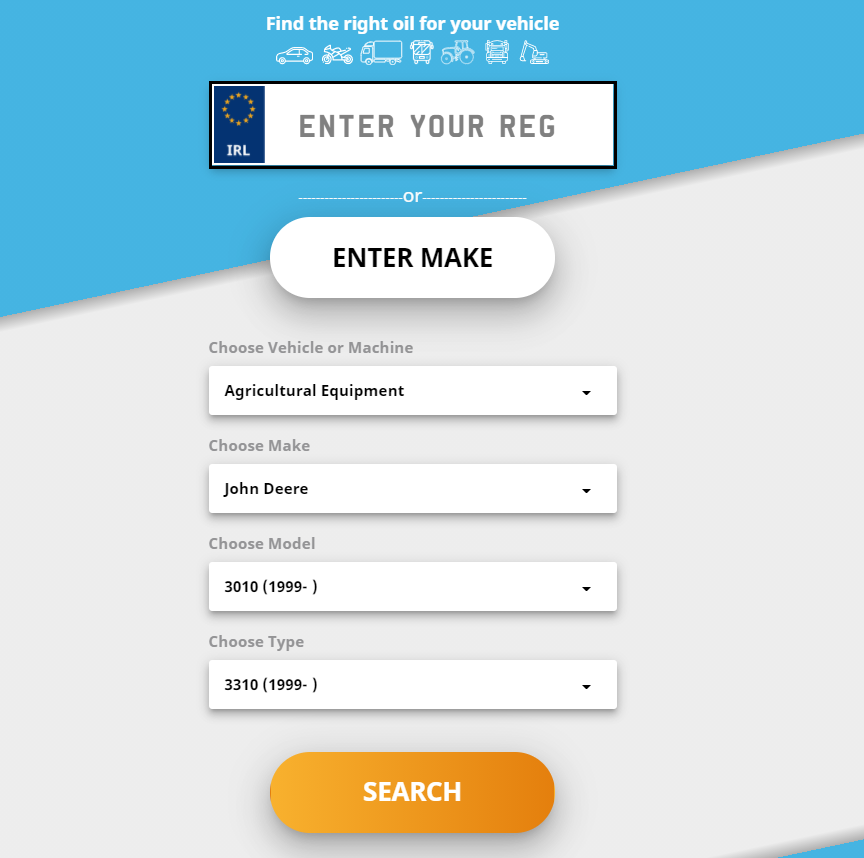Sponsored Article
Lubricants competition: Increase your efficiency this season with the correct lubricants
Sponsored Article

Effective planning practices are essential for any business but particularly within the agricultural industry. Moreover, having the right information to hand is vital in the planning stage. As we approach one of the busiest periods in the farming season, selecting your engine oil is one of those big decisions.
That’s why Finol Oils is offering the chance to win a barrel of market-leading engine oil and ensure that your agricultural machinery is on the field when you need them most (for details on the competition, scroll to the bottom of the article).
Engine oil is the lifeblood of every tractor and proper lubrication keeps it on the field. But not all engine oils are created equal. Some will have a huge impact on machinery performance, service requirements and fuel efficiency, lowering your costs.
To help your planning, Finol Oils is highlighting the key information you need to choose the correct engine oil for your tractor.
Viscosity is an oil’s resistance to flow and is the most important factor to watch out for. Viscosity plays a crucial role in both the protection of the engine and performance. It also affects fuel consumption as the engine can operate more efficiently.
What does resistance to flow mean? If we take water as an example, it is a low viscosity fluid as it can flow incredibly fast. But a liquid-like syrup is considered a high viscosity fluid as it flows slowly. If we increase the temperature of syrup, the viscosity drops, meaning that it will flow faster.
Most tractors run on a multi-grade lubricant. If you take a 10W-40 engine oil, the lower the number, the thinner the oil and the easier it flows. The 10W refers to how the oil flows at low temperatures (in winter); 40 refers to how it flows at high temperatures. Always ensure you use the viscosity specified by the manufacturer.
International specifications are extremely important as they indicate whether engine oils have passed the latest tests set out by International bodies.
The most prominent is the ACEA (European Automobile Manufacturers Association), which indicate heavy-duty engine oils with an E and API (American Petroleum Institute) who use a C.
CH-4: For vehicles manufactured between 1998 and 2002 and provide better control of viscosity loss from shear, sludge and volatility.
CI-4: Similar to CH-4 but provides added benefits related to viscosity and low-temperature pumpability.
CI-4 Plus: Meets all the requirements of CI-4 but with added resistance to oil thickening.
CJ-4: Introduced in 2006, these oils provide better control of sulphated ash, phosphorous and sulphur content.
CK-4 and FA-4: Better protection against engine oil aeration, oxidation and viscosity loss, FA-4 also adds fuel economy benefits.
E4: E4 oils place an emphasis on a high level of detergency, reducing the build-up of combustion deposits on pistons and excellent control of cleanliness. E4 products are usually partially or fully synthetic and are more expensive than mineral-based oil.
E6: Ultra-high-performance diesel lubricants (UHPD), E6 lubricants are specifically designed for use in long drain applications operating in severe conditions. Very similar to E4 engine oils, E6 has the extra benefit of low SAPS for vehicles that have a DPF and are usually fully synthetic.
E7: An oil that suits the majority of current engines as long as they do not have a DPF in their exhaust. Mineral-based engine oils are usually cheaper than low-saps oils. These factors make it one of the most popular sequences in the Irish market today.
E9: Very similar to E7 oils the main difference being that the E9 oils are low SAPS. Although still mineral-based, E9 products need a low-sulphur base oil that differs from the base oil used for E7 oils. This makes an E9 more expensive than E7.
There are two types of information to review, OEM approved and a “meets the specification”. Similar to international specifications, manufacturers put oils through vigorous testing to ensure that they are both the right formulation and perform the essential functions that their engine requires.
Oil manufacturers can then pay a fee to have their oils registered as approved by the manufacturer or leave the oil as recommended. Vehicles that are inside their warranty period will need to use oils that are approved so as not to void them.
There are three main types of engine oils: mineral; synthetic; and semi-synthetic, each with a different composition.
Mineral Oils: Mineral oils are made from refined crude petroleum oil. During this process, natural contaminants and unwanted hydrocarbons are removed. Although cheaper, mineral oils are thicker and flow through the engine circuit slowly, resulting in increased fuel consumption.
Semi-Synthetic Oil: Semi-synthetic oil is a blend of synthetic oil and mineral oil. Semi-synthetic oil contains at most 30% synthetic oil but can carry as little as 1% synthetic to be classed this way.
Synthetic Oil: Synthetic oils are made by mixing many synthetic components that are refined, distilled and broken down. The main difference is the transformation process. Synthetic oil undertakes complex modifications and has fewer impurities than mineral oils. Benefits include reduced oil changes, less wear on parts and lower fuel consumption, but they are usually more expensive. Always check your owner’s manual for suitability before purchasing.
All of this information may seem complicated but the margins between choosing the right engine oil are fine. That’s why the team at Finol recommend using Which Oil before you make that decision.
The lubricant advisor, available for use at: www.whichoil.ie offers many features to simplify your oil search.
Which Oil provides users with an easy-to-use system and accurate results that are provided instantaneously.
- Go to: www.whichoil.ie;
- Select the vehicle or machine;
- Choose your tractor make;
- Select the model;
- Pick the type;
- Click search.
For over 40 years, Finol has provided high-performance lubricants to the agricultural sector. To help you at this busy time, Finol are offering you the chance to win a barrel of market leading engine oil.
To enter this competition, go to: www.finol.ie/agri-competition and follow the instructions.
Sponsored Article







